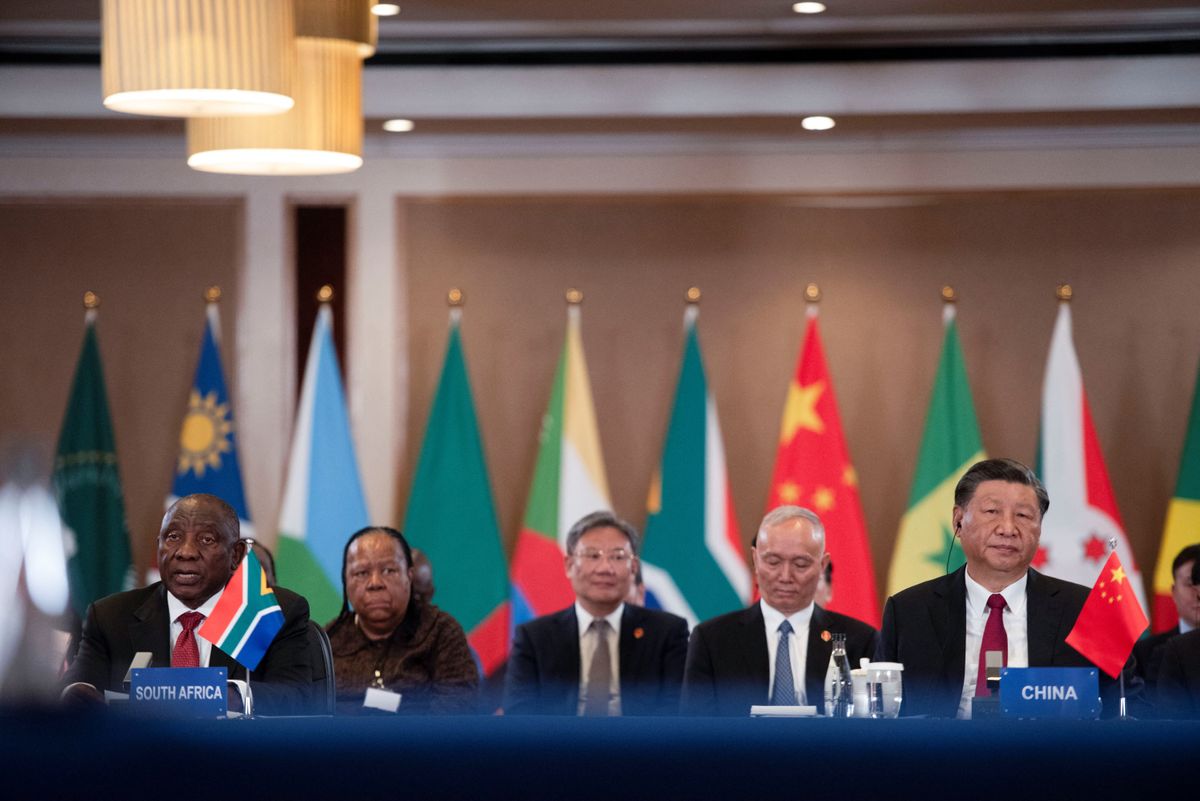BRICS bloc extends its reach by inviting new members
At this week’s summit, BRICS leaders invited Saudi Arabia, Argentina, Egypt, Ethiopia, Iran and the UAE to join the bloc.

A few minutes every morning is all you need.
Stay up to date on the world's Headlines and Human Stories. It's fun, it's factual, it's fluff-free.
The backstory: BRICS is an economic bloc that was officially formed back in 2009 after the global financial crisis had shaken the world. Initially, it was made up of four countries: Brazil, Russia, India and China. In 2010, South Africa joined the group – hence the acronym.
The idea behind the bloc is based on two early-2000s Goldman Sachs papers, which named these countries’ economies as emerging to dominate the global market by 2050-ish. The BRICS group is kind of like an answer to the Group of 7 (G7), which includes the US, UK, Canada, France, Germany, Italy and Japan (plus the EU). Every year, BRICS holds a summit where these large but very different countries try to create a working relationship to build up their global clout and economic advancements.
More recently: In recent years, BRICS has been making efforts to change the currents of the world, which has existed mostly under the political and economic structures built and maintained by the West. There’s been talk of BRICS, which already represents 40% of the global population, looking to expand to bring on some other countries with emerging economies to become more influential and stronger in the global arena. The 15th annual BRICS summit was held in Johannesburg, South Africa, from Tuesday to Thursday this week.
The development: At this week’s summit, BRICS leaders invited Saudi Arabia, Argentina, Egypt, Ethiopia, Iran and the UAE to join the bloc, and these countries will become full members on January 1 of next year. South African President Cyril Ramaphosa announced this development at a press conference with other BRICS leaders on Thursday. At the conference, BRICS also decided to start creating a two-tiered membership system, allowing for both full members and partners of the bloc.
UN chief Antonio Guterres supported these moves, saying that this is a step toward more cooperation. But, the inclusion of Iran could complicate things a bit, with it having such a strained relationship with the West. As these changes take shape, India and China will also make efforts to sort out their friction when it comes to border and trade disputes.
Key comments:
“I have come to the BRICS Summit with a simple message: in a fracturing world overwhelmed by crises, there is simply no alternative to cooperation,” António Guterres posted on X. “As we move towards a multipolar world, we must urgently restore trust & reinvigorate multilateralism for the 21st century.”
“This membership expansion is historic,” Chinese President Xi Jinping said on Thursday. “It shows the determination of BRICS countries for unity and cooperation for the broader developing world.”
“The group is going down an uncharted path, with new actors that have varied interests,” said Manoj Kewalramani, a China studies fellow at the Takshashila Institution in India. “It’s going to become unwieldy and, dare I say, more ineffective.”




Comments ()